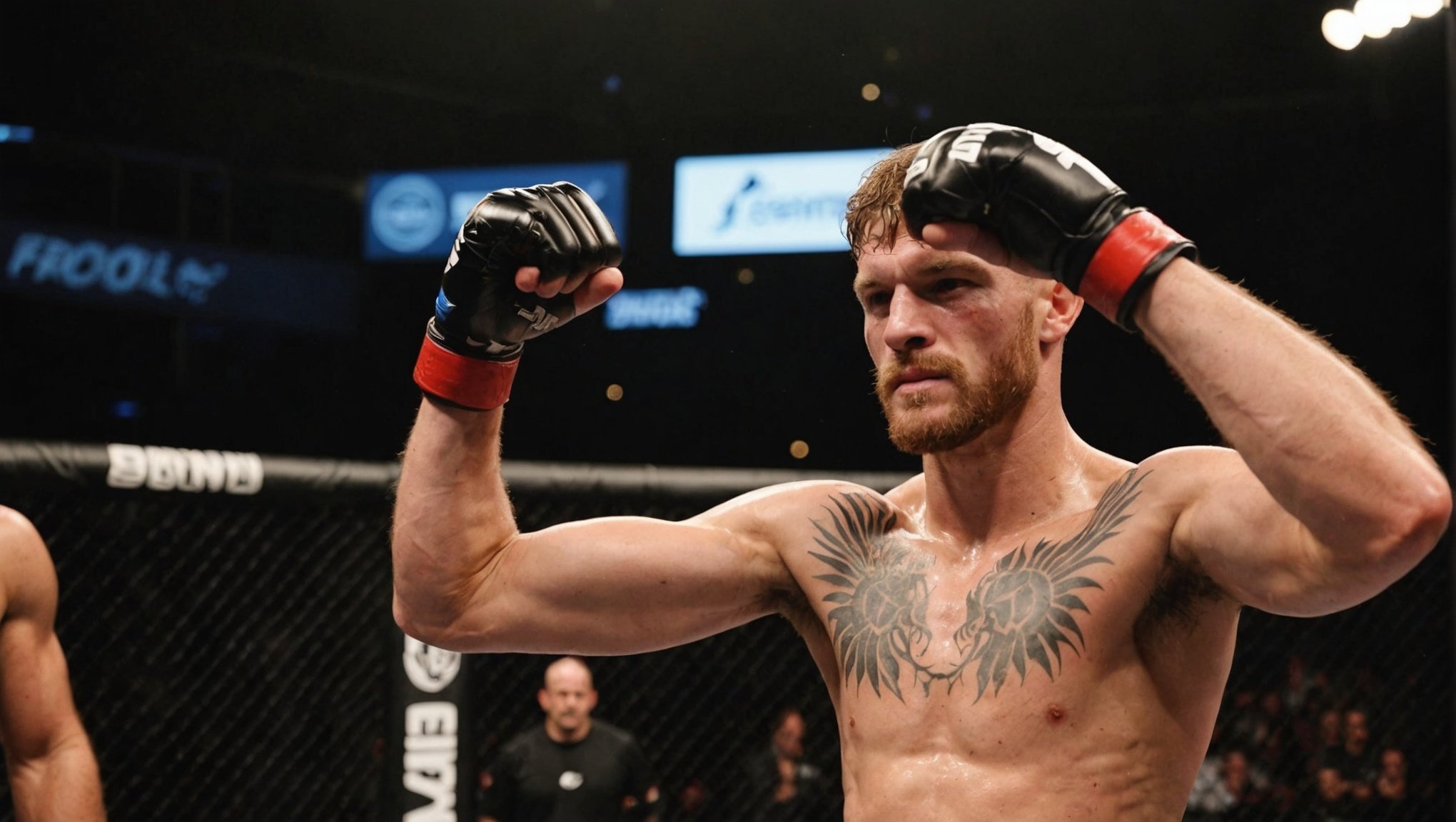Hydration can make or break a fighter on the day of a match. UK MMA fighters face unique challenges that require tailored strategies for optimal performance. Effective hydration goes beyond merely gulping down water; it involves understanding fluid balance, electrolyte intake, and timing. Explore essential tips to enhance your hydration routine, boost endurance, and enhance recovery, ensuring you're at your best when it matters most. Embrace these strategies to elevate your fight day experience and achieve your competitive goals.
Importance of Hydration for MMA Fighters
Hydration plays a crucial role in athletic performance, particularly for MMA fighters. Proper hydration ensures optimal muscle function, reduces the risk of injury, and enhances overall stamina. When fighters maintain adequate hydration levels, they are better equipped to perform at their peak during intense training sessions and fights.
Also read : Mastering Match Strategy: Tips for UK Kickboxers to Enhance Tactical Thinking in the Ring
Dehydration, on the other hand, can have severe consequences. It can lead to diminished strength, slower reaction times, and increased fatigue, all of which can negatively impact a fighter's performance in the ring. Additionally, dehydration during fights can increase the risk of heat-related illnesses, which can be dangerous in such a physically demanding sport.
Furthermore, hydration significantly impacts recovery and endurance. Proper fluid intake helps in the removal of toxins and supports muscle repair, allowing fighters to recover more quickly after a fight or training session. This, in turn, enhances their endurance, enabling them to train harder and longer. By understanding and prioritising hydration, MMA fighters can ensure they maintain peak performance levels and safeguard their health.
Also to see : Top Strategies for UK Combat Athletes to Overcome Jet Lag When Competing Abroad
Understanding Fluid Needs
Fluid intake is a vital component for MMA fighters, with hydration requirements varying based on several factors. A fighter's weight, activity level, and environment play crucial roles in determining their specific needs. For instance, heavier fighters or those training in hot climates may require more fluids to maintain optimal performance levels.
The recommended daily fluid intake for MMA fighters often exceeds that of the average person. While general guidelines suggest about 3.7 litres for men and 2.7 litres for women, fighters might need more, especially during intense training periods. It's essential to adjust these figures based on individual circumstances and training intensity.
Hydration needs also differ between training days and fight days. During training, the focus is on maintaining consistent hydration to support endurance and recovery. On fight day, precise management of fluid intake is critical to ensure peak performance without risking dehydration. Fighters often employ strategies like drinking electrolyte-rich fluids to balance hydration and energy levels.
By understanding these variables, MMA fighters can tailor their hydration requirements to their specific needs, ensuring they remain at the top of their game both in training and in the ring.
Optimal Timing for Hydration
Understanding the optimal timing for hydration is crucial for MMA fighters aiming to maximise their performance. In the days leading up to a fight, fighters should prioritise consistent hydration to ensure their bodies are well-prepared. This involves gradually increasing water intake to maintain balance and avoid sudden fluid overload.
Pre-fight hydration is particularly important. Fighters should focus on hydrating adequately in the 24 hours before the fight, ensuring they are not only well-hydrated but also retaining essential electrolytes. Drinking small amounts of water frequently, rather than large quantities at once, is recommended to maintain steady hydration levels.
On the morning of the fight, strategic hydration can enhance performance. Consuming electrolyte-rich fluids can help balance hydration and energy levels, providing a boost without risking bloating or discomfort. Additionally, during the warm-up, sipping water can prevent dehydration and keep muscles functioning optimally.
By mastering these hydration timing strategies, MMA fighters can ensure they enter the ring in peak condition, ready to perform at their best.
Electrolyte Balance
Understanding the role of electrolytes is vital for MMA fighters aiming to maintain peak performance. Electrolytes such as sodium and potassium are essential for regulating fluid balance, muscle contractions, and nerve function. During intense training and fights, fighters lose these crucial minerals through sweat, making it imperative to replenish them.
Importance of Electrolytes in Hydration
Electrolytes help maintain fluid balance by controlling the movement of water in and out of cells. Sodium is particularly important for retaining water, while potassium aids in muscle function and preventing cramps. Without adequate replenishment, fighters may experience dehydration and reduced performance.
Recommended Electrolyte Sources
To maintain optimal electrolyte levels, fighters should consume foods rich in sodium and potassium. Good sources include:
- Bananas and oranges for potassium
- Sports drinks containing sodium and other minerals
- Leafy greens and nuts for a balanced intake
Signs of Electrolyte Imbalance
Symptoms of imbalance include muscle cramps, fatigue, and dizziness. Fighters should monitor these signs and adjust their diet and fluid intake accordingly. By prioritising electrolyte balance, MMA fighters can enhance their endurance and performance, ensuring they are fully prepared for the demands of their sport.
Practical Hydration Techniques
For MMA fighters, selecting the right hydration methods is essential for maintaining performance and managing weight. Different liquid types offer unique benefits, making it crucial to tailor hydration strategies to individual needs.
Water remains the most fundamental option, providing essential hydration without added calories or sugars. It is ideal for everyday consumption and maintaining baseline hydration levels. However, during intense training or fights, sports drinks can be more effective. These beverages contain electrolytes like sodium and potassium, which help replenish what is lost through sweat, aiding in muscle function and preventing cramps.
Coconut water is another popular choice due to its natural electrolyte content. It offers a more natural alternative to sports drinks and can be beneficial for those who prefer a lighter option.
Experimenting with different hydration methods allows fighters to discover what works best for their bodies. By understanding the role of various liquid types, MMA fighters can optimise their hydration strategy, ensuring they remain in peak condition while effectively managing their weight.
Hydration Myths Debunked
In the world of MMA, hydration myths can often mislead fighters, affecting their performance and health. One prevalent misconception is that caffeine and diuretics significantly dehydrate the body. While caffeine does have a mild diuretic effect, studies show it doesn't cause excessive fluid loss. In fact, moderate caffeine consumption can be part of a fighter's hydration strategy without adverse effects.
Another common myth is that thirst is a reliable indicator of hydration needs. Relying solely on thirst can lead to underhydration, as the body's thirst mechanism isn't always in sync with its hydration requirements. Fighters should instead monitor their fluid intake consistently, ensuring they meet their specific needs based on training intensity and environmental conditions.
Finally, some believe that drinking large amounts of water at once is the best way to hydrate. This approach can lead to discomfort and bloating. It's more effective to drink smaller amounts regularly throughout the day. By debunking these common misconceptions, MMA fighters can adopt more informed hydration practices, enhancing their performance and safeguarding their health.
Case Studies and Expert Opinions
In the realm of MMA, expert insights and real-world examples provide valuable guidance on hydration strategies. Successful fighters often share their experiences, highlighting the importance of tailored hydration plans. For instance, renowned fighter Georges St-Pierre attributes his peak performance to a meticulous hydration routine. He emphasizes the significance of balancing water intake with electrolytes to maintain stamina and prevent cramps.
Insights from Top MMA Camps
Top MMA camps, like American Top Team, implement comprehensive hydration practices. These camps focus on monitoring fighters' fluid levels closely, ensuring they remain hydrated without risking weight gain. They employ advanced techniques, such as sweat rate analysis, to customise hydration plans for each fighter. This precision helps fighters maintain optimal performance and recovery.
Expert Opinions on Hydration
Experts in sports nutrition, like Dr. Abbie Smith-Ryan, stress the critical role of hydration in athletic performance. She notes that even slight dehydration can impair cognitive and physical abilities, underscoring the need for consistent fluid intake. Her research supports the idea that fighters should not only hydrate based on thirst but also consider environmental factors and training intensity.
By examining these case studies and expert opinions, MMA fighters can refine their hydration strategies, enhancing their performance and health in the ring.
Visual Aids and Infographics
Visual aids, such as infographics, play a crucial role in simplifying and enhancing the understanding of hydration strategies for MMA fighters. These tools can break down complex information into digestible formats, making it easier for fighters to grasp essential concepts quickly. By using visual hydration guides, fighters can more effectively plan their hydration routines, ensuring they are well-prepared for both training and fight days.
Suggested Infographics
Infographics can illustrate key aspects of hydration, such as optimal hydration timing and the benefits of different fluid types. For instance, a visual guide might display a timeline indicating when to consume water and electrolyte-rich drinks in the lead-up to a fight. Additionally, infographics can highlight the advantages of various fluids, like coconut water or sports drinks, helping fighters choose the best options for their needs.
Creating a Hydration Checklist
Developing a hydration checklist for fight day can be beneficial. This checklist might include reminders for consuming specific fluids at designated times, ensuring fighters maintain optimal hydration without overloading. By incorporating visual aids into their routines, MMA fighters can enhance their hydration strategies, leading to improved performance and recovery.






